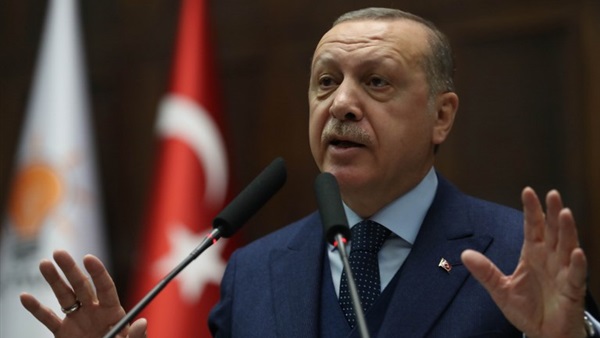Turkey's economy crashes, Erdogan reeling

Paris
Catherine Gaber
The Turkish lira fell to an all-time low on Friday, plunging 20%
versus the US dollar in one day. In a speech, President Tayyip Erdogan urged
Turks to swap dollar and euro holdings to the Turkish lira in a bid to increase
its value via hiking up demand for it.
Erdogan cited what he labeled as "a foreign conspiracy"
to ruin the Turkish economy as the lira fell to 6.99
versus the US currency (USD=6.99 lira), a historic record low, shedding roughly
40% since the beginning of the year.
Acute economic crisis & poor governance
Turkey's economic turmoil is a result of over-indebted Turkish
companies, which relied on credit in the US currency in compliance of Erdogan's
policy for economic development driven by borrowing.
This policy has put Turkey's economy prone to foreign exchange
fluctuations as the country's imports highly exceed exports.
Turkey has suffered from a serious current account deficit as it
relied heavily on foreign funding, especially in the US dollar. The economic
turmoil has worsened due to structural problems caused by the economic policies
applied by the Erdogan-led government.
The Turkish banks were hit hard, and accelerating inflation rate
has slashed the purchasing power of the Turkish family by 16% in July alone.
The European Union is concerned of possible shockwaves that may
affect stock markets and European banks operating in Turkey, especially as the
central authorities hesitate to take action against the lira crash and spiraling
inflation.
The Erdogan-led government is afraid of increasing the interest
rates as a solution. It also hesitates to take action against capital outflows
by toughening the monetary and financial policies.
Analysts say such painful solutions may trigger massive protests
against Erdogan and his economic policies.
The Turkish lira took another blow on Friday after US President
Donald Trump approved higher tariffs on steel and aluminum imports from Turkey
by 50% (from 25% and 10% to 50% and 20% respectively).
But why Trump imposed economic sanctions on Turkey?
A serious political crisis & economic turmoil
A diplomatic crisis has erupted between Turkey and the United
States after Ankara detained American Christian pastor Andrew Brunson last
week. Ankara accuses Brunson, who is under house arrest, of spying for Fethullah
Gulen and Kurdistan Workers' Party. The US announced sanctions on Turkey's
Justice and Interior ministers.
However, Ankara refuses to release Brunson.
Turkey's Halkbank scandal
The US imposed economic sanctions mostly on the back of the Halkbank
case. A US court sentenced nine Turks, including Mehmet Hakan Atilla, deputy manager
of Turkey’s state-controlled Halkbank.
Atilla, former government officials and three executives were
sentenced by Manhattan court to 32 months in prison for charges of money
laundering, forgery in billions of dollars affairs. The charges also included taking
part in a scheme to help Iran evade US sanctions as Ankara encouraged trade
with Iran between 2010 and 2015.
Turkey allowed gold smuggling, bribery and transferring billions of
foreign currencies to Iran. In return, Turkey received hydrocarbons from Iran,
sources said.
Turkish businessman Reza Zarrab admitted he had taken part in
Halkbank's money laundering schemes and cooperated with the FBI to arrest all the
people involved in the case.
The US court asked Halkbank to pay back billions of dollars. The
case also involves Erdogan's son-in-law -- Berat Albayrak -- and Energy and
Natural Resources Minister, who was head of Calik Holding, the parent company
of Aktif Bank, which is also involved in the matter.





